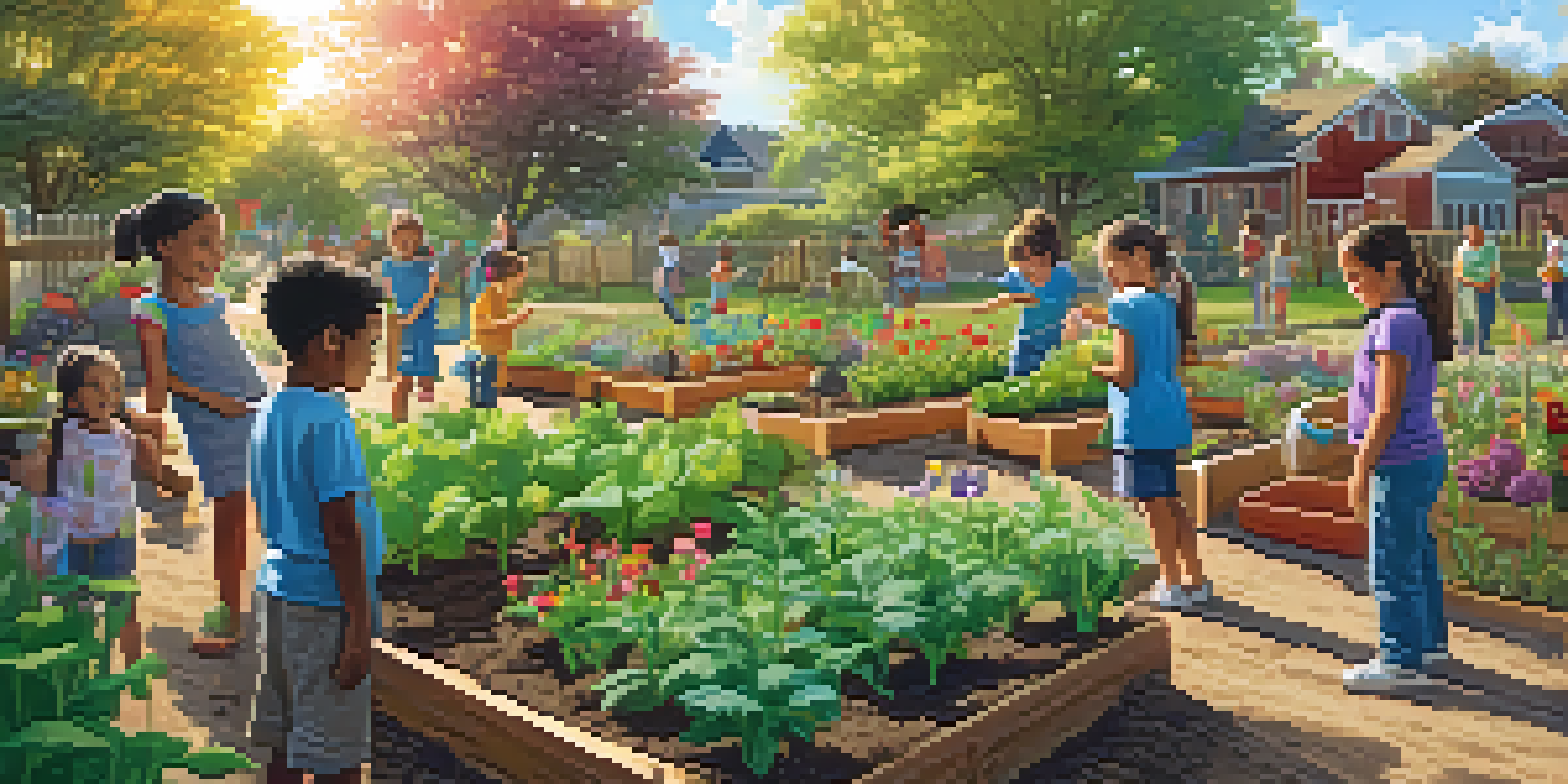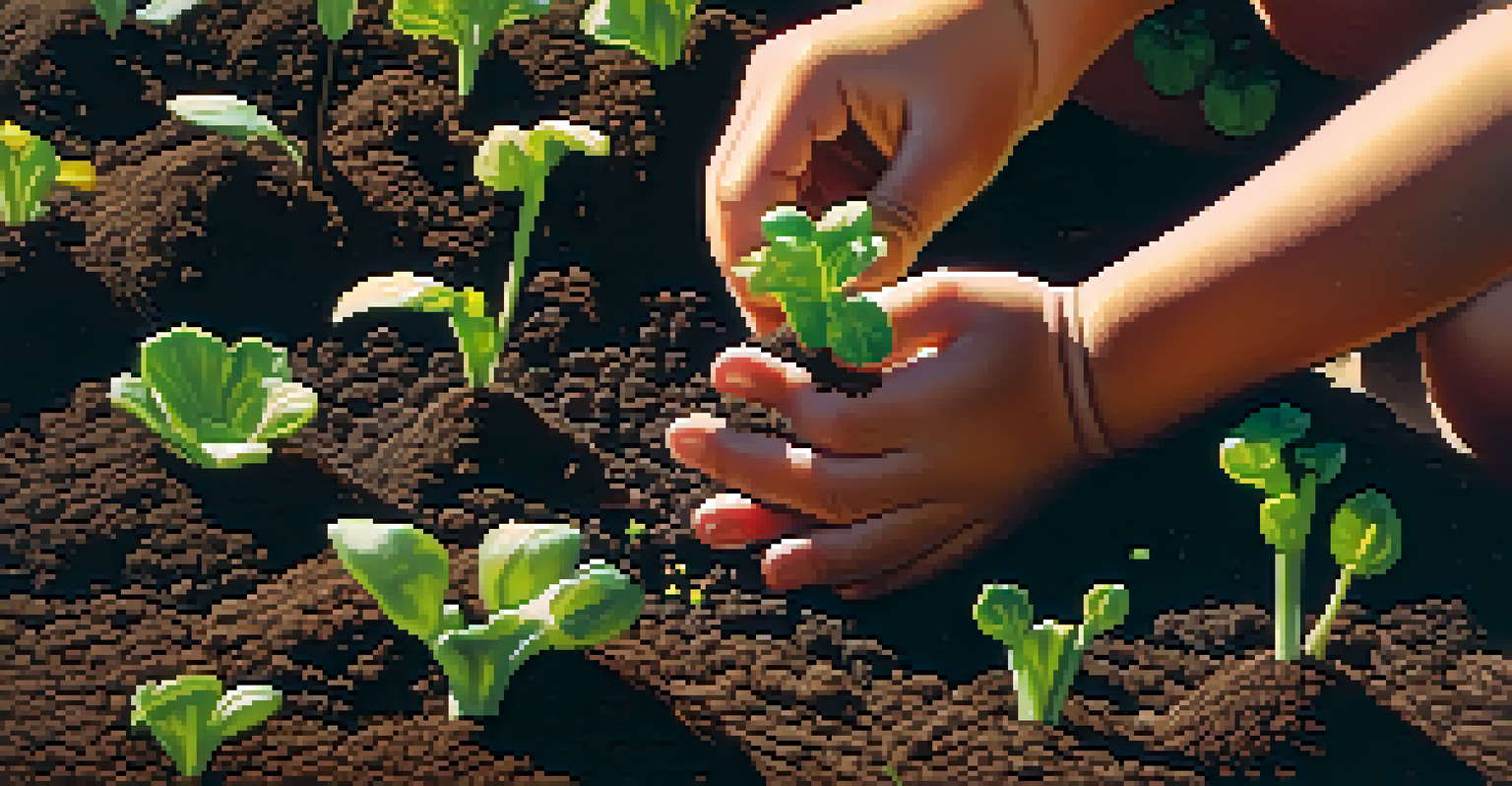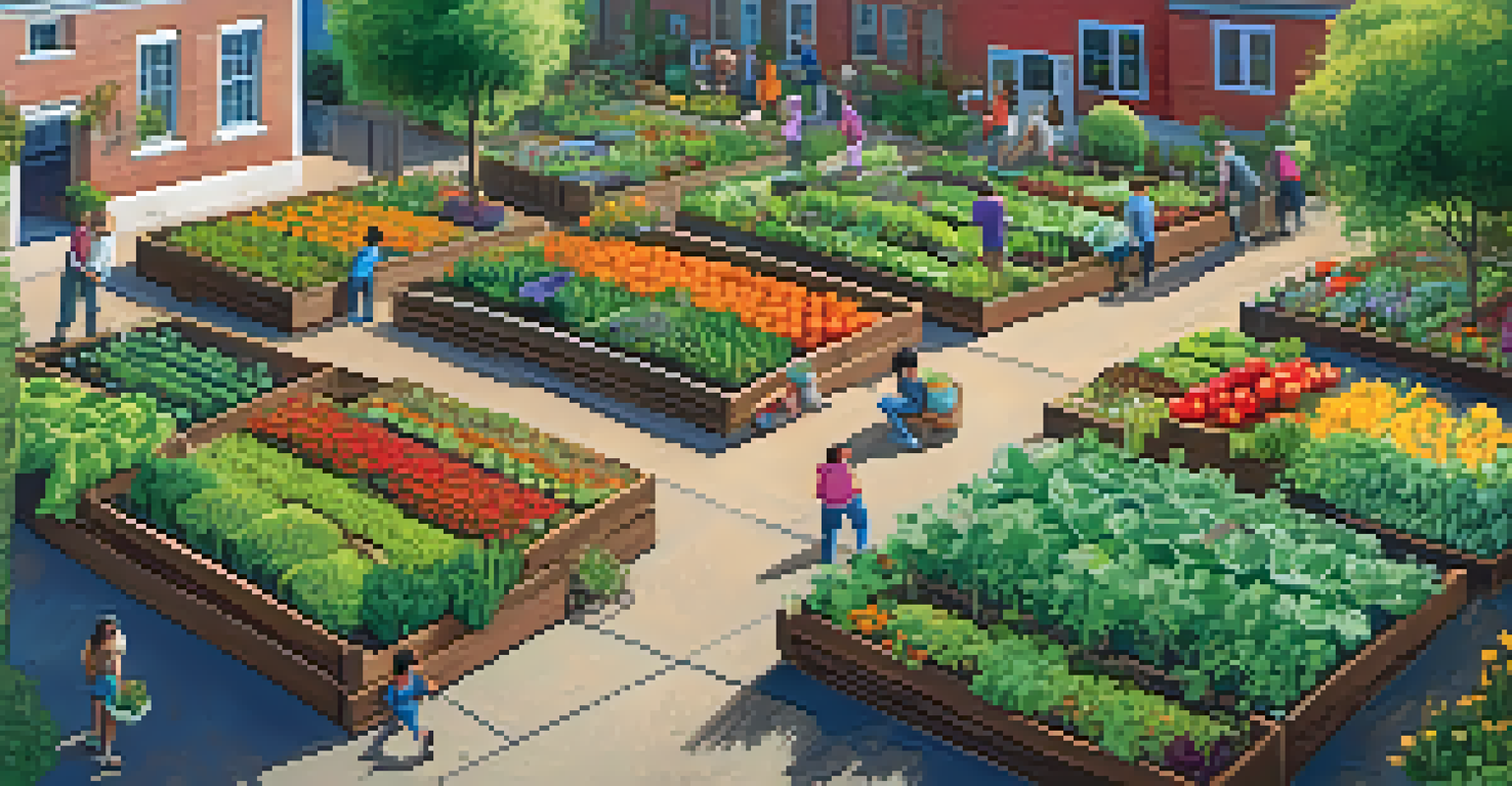How Community Gardens Teach Healthy Habits to Children

Understanding the Role of Community Gardens
Community gardens are shared spaces where people come together to grow fruits, vegetables, and flowers. These gardens provide not just food but also a sense of community and belonging. For children, these gardens become a vibrant classroom where they can learn about nature, responsibility, and healthy eating.
The greatest gift of the garden is the restoration of the five senses.
As kids dig their hands in the soil, they gain a firsthand understanding of where food comes from. It's a stark contrast to the packaged items found in grocery stores. This connection to the earth helps foster a sense of appreciation for fresh produce and the work that goes into growing it.
Moreover, these gardens often include educational programs that teach children about nutrition and the benefits of eating healthy. By engaging in these activities, kids become more aware of their food choices and how to make healthier decisions.
Promoting Physical Activity Through Gardening
Gardening is a surprisingly physical activity that can keep children active. Whether they are digging, planting, weeding, or watering, kids are constantly moving and engaging their bodies. This physical aspect of gardening helps combat sedentary lifestyles, encouraging children to be more active and energetic.

In a world dominated by screens, community gardens offer a refreshing alternative. Children can run around, explore nature, and participate in hands-on activities that stimulate their bodies and minds. This movement not only promotes physical health but also contributes to mental well-being.
Community Gardens Foster Learning
Children gain hands-on experience about nature, healthy eating, and environmental stewardship through community gardens.
Additionally, working together in a garden fosters teamwork and social skills. Children learn to collaborate, share tasks, and celebrate their successes, which can lead to lifelong friendships and a sense of community.
Encouraging Healthy Eating Habits
One of the most significant lessons children learn from community gardens is the value of healthy eating. When kids grow their own vegetables, they often become more inclined to try them. The excitement of harvesting their crops can turn even the pickiest eaters into enthusiastic vegetable lovers.
Gardening adds years to your life and life to your years.
Community gardens often have cooking classes or recipe-sharing sessions, further encouraging healthy eating habits. By learning how to prepare meals with fresh ingredients, children develop a deeper understanding of nutrition and healthy meal planning. It transforms their view of food from mere sustenance to something enjoyable and fun.
This early exposure to fresh produce can help establish lifelong healthy eating habits. Children who engage with their food from a young age are more likely to continue making healthy choices as they grow, creating a ripple effect that can impact their families and communities.
Building Environmental Awareness
Community gardens are also a fantastic way to teach children about the environment. As they learn about plants, soil, and ecosystems, they develop an appreciation for nature. This hands-on experience reinforces the importance of caring for our planet and can inspire future environmental advocates.
By observing how plants grow and interact with their surroundings, children become more aware of biodiversity and the role each organism plays. Engaging with the environment in this way fosters a sense of responsibility towards nature and encourages children to think critically about their impact on the world.
Gardening Promotes Physical Activity
Engaging in gardening activities keeps children active, combating sedentary lifestyles while fostering teamwork and social skills.
Moreover, many community gardens incorporate sustainable practices, such as composting and organic gardening. This exposure to eco-friendly methods can instill values of sustainability in children, teaching them that their choices can lead to positive environmental change.
Fostering Emotional Development
Gardening is not just about physical activity; it's also an emotional journey for children. As they nurture their plants and witness their growth, they develop patience and resilience. These skills are crucial as they learn that not every seed will sprout and not every plant will thrive.
The process of caring for living things can also enhance empathy in children. They learn to understand the needs of plants, which can translate to better emotional intelligence when interacting with peers. This connection with nature can serve as a soothing experience, calming anxieties and providing a sense of accomplishment.
Additionally, community gardens often create a safe space for expression and creativity. Children can personalize their plots, experiment with colors and designs, and share their unique ideas, fostering a sense of ownership and pride.
Encouraging Cultural Exchange and Diversity
Community gardens often bring together people from diverse backgrounds, creating opportunities for cultural exchange. When children work alongside peers from different cultures, they learn about various gardening practices, cuisines, and traditions. This exposure broadens their horizons and promotes inclusivity.
As children share their own gardening experiences and recipes, they build connections and friendships that transcend cultural barriers. This shared experience fosters understanding and appreciation for diversity, teaching kids valuable lessons about cooperation and respect.
Cultural Exchange Through Gardening
Community gardens create a space for children to learn about diverse cultures and practices, promoting inclusivity and understanding.
Moreover, gardening can be an avenue for storytelling. Elders can share their gardening wisdom and cultural practices, creating a vibrant tapestry of knowledge that enriches the community. This exchange not only enhances the gardening experience but also strengthens community bonds.
Creating Lifelong Memories and Skills
The lessons learned in community gardens can stay with children for a lifetime. The skills they develop, from planting seeds to harvesting vegetables, can translate into valuable life skills. These experiences foster independence, responsibility, and a strong work ethic.
The memories made in these gardens—whether it’s the joy of planting a seed or the excitement of a bountiful harvest—can become cherished moments that children carry into adulthood. These early experiences can spark a lifelong passion for gardening and healthy living.

Ultimately, community gardens serve as a nurturing ground for personal growth, teaching children not just how to garden but also how to appreciate the world around them. As they grow, they carry these lessons forward, influencing future generations to embrace healthy habits.